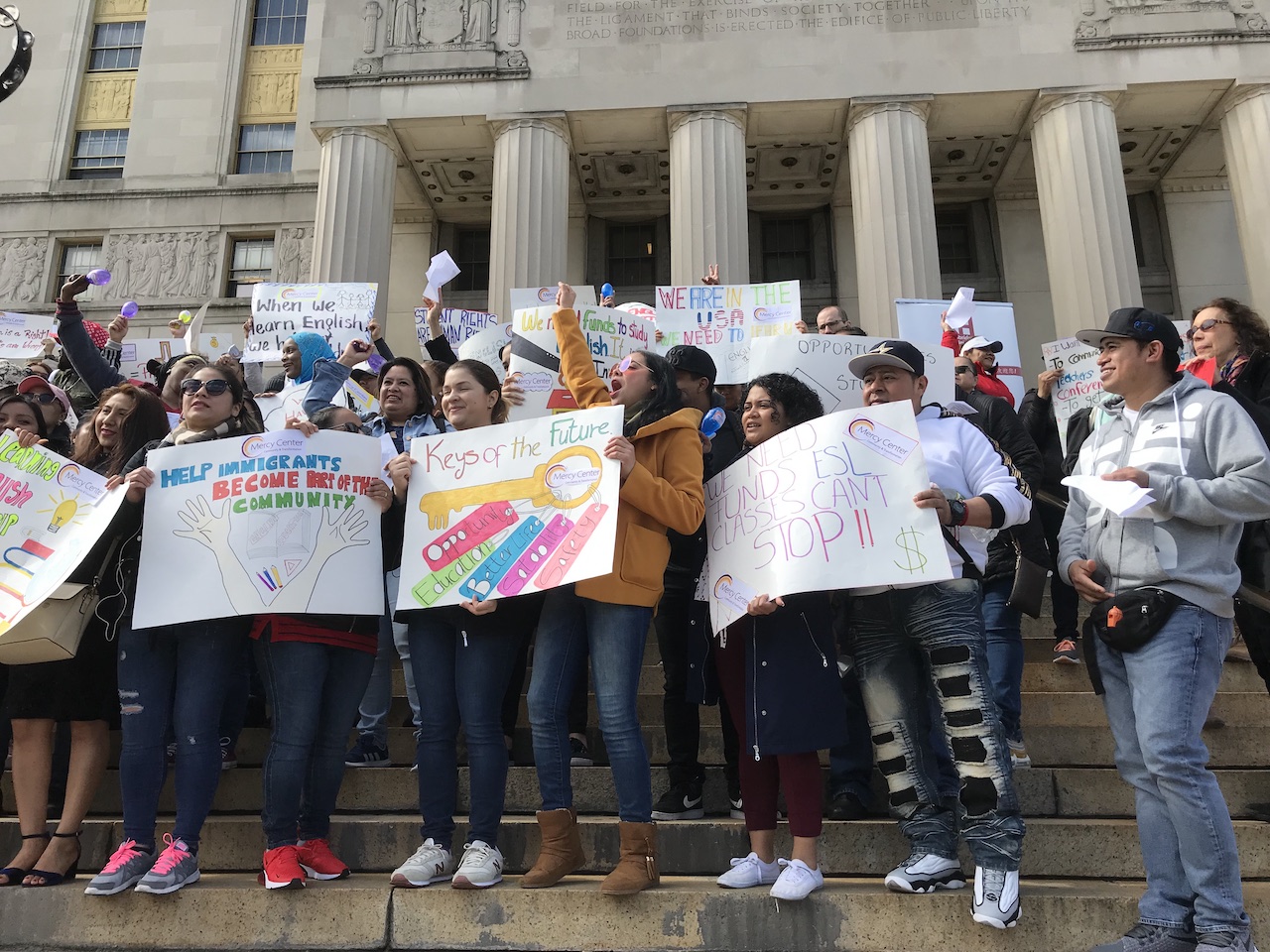
In immigrant-friendly New York City, some immigrants feel Mayor Bill de Blasio is turning his back on them by eliminating funding for adult literacy programs they say are essential for upward mobility.
On Apr. 17, community based organizations Mercy Center, BronxWorks, Kingsbridge Heights Community Center (KHCC) and their students rallied outside of the Bronx County Courthouse on the Grand Concourse to urge the mayor to restore funding for adult literacy programs like Adult Basic Education and English for Speakers of Other Languages (ESOL).
The rally was part of a citywide campaign by the New York City Coalition for Adult Literacy to call on the mayor to include $12 million for these programs in his executive budget for 2020, which he will finalize in June. Funding for these programs were not included in the preliminary budget in February.
“I think our message is very clear to the mayor,” said Blanca Ramirez, director of social services at Mercy Center. “You can’t say ‘let’s celebrate immigrants’ and then take away our money or cut our budget. You have to put your money where your mouth is.”
Aida Roman, originally from Puerto Rico, has been a student at KHCC’s ESOL courses since October 2018. She is also the owner of Majestic Balloons, a party decorating business. Thanks to the classes, Roman said, she has been able to expand her customer base to include English-speaking customers.
“We have families that don’t rely on a lot of money and can’t pay $200 or $300 for private courses,” said Roman. “These organizations help us have a way to express ourselves in the United States.”
If funding for these programs is cut, community organizations like Mercy Center expect that they will have no choice but to lay off ESL teachers, leaving students with nowhere else to go. Lena Cohen, civic engagement associate at United Neighborhood Houses, which advocates for policy and social change, explained that community-based programs do not require students to prove they have entered the workforce after completing the program.
“That is extremely unrealistic for the thousands, if not, millions of immigrants who are the lowest level earners,” said Cohen, “and just very unfamiliar with the way New York City’s economic and civic life work.”
This is not the first time these programs have been on the chopping block. For the last two years, the NY Coalition for Adult Literacy has successfully pressured the city to include $12 million on the mayor’s executive budget. But in February, de Blasio called on city agencies to cut their budgets for the 2020 fiscal year, citing uncertainty over aid from the state and federal governments.
New York State allocated $7.8 million for adult literacy education in the 2019-2020 state budget, but Cohen explained that New York City receives only half of that money, calling it a “massive underinvestment of state government.”
When asked if the mayor has plans to fund adult literacy programs in the executive budget, Raul Contreras, the mayor’s deputy press secretary, said that the city has evaluated program needs with the City Council.
“This year,” said Contreras, “we will need to be cognizant of the city’s new economic reality and our citywide mandatory saving targets when evaluating any new needs.”
Until the budget is finalized in June, students like Alfonso Gomez, who came to New York from Mexico 14 years ago, are in limbo. “We are fighting for our future,” said Gomez, “and we want to succeed.”

